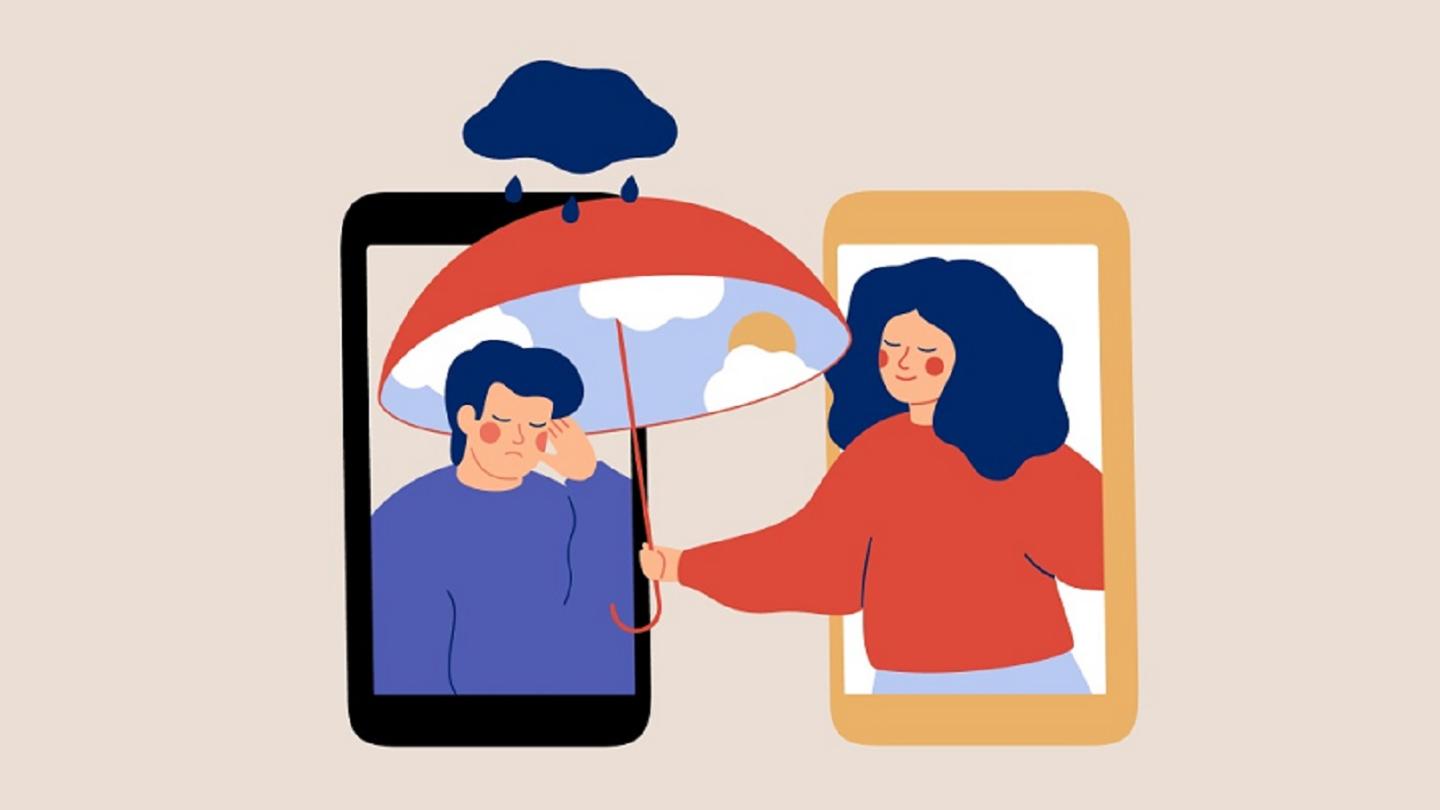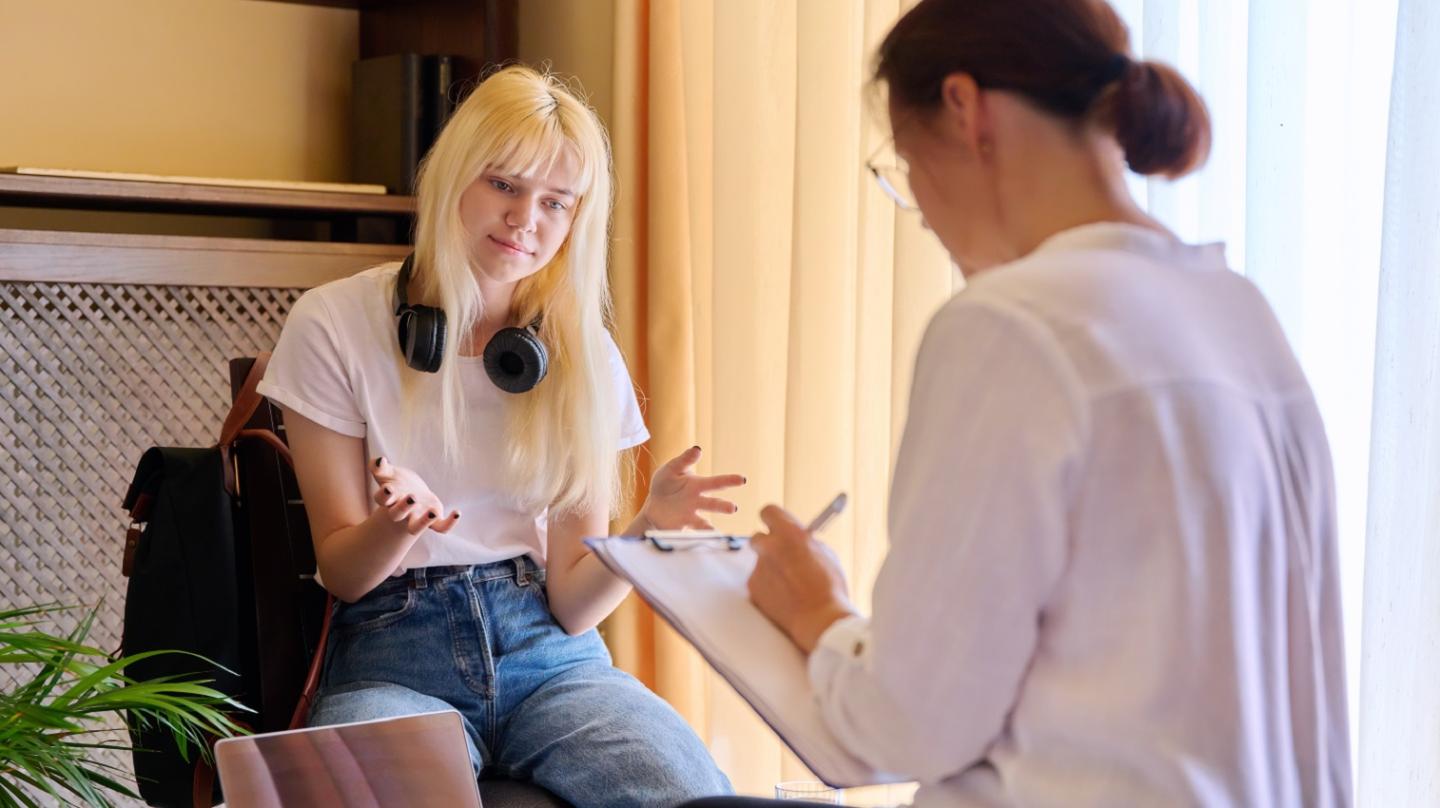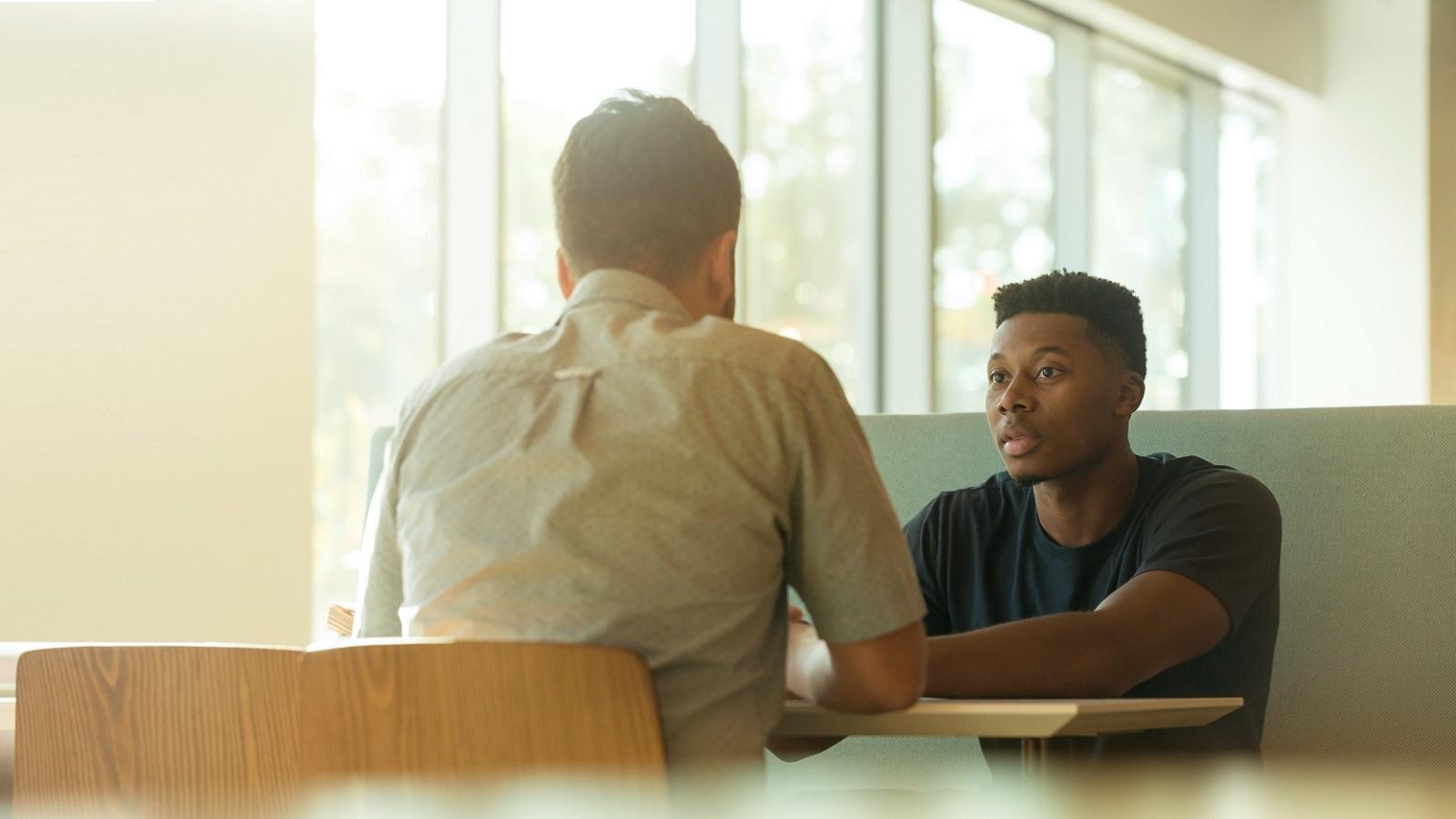A counsellor is a caring person who has had specialist training to help you understand your emotions and how they make you feel.
Counselling is a safe place for you to talk about any issues that might be bothering you or that you feel you are struggling with. Some common reasons young people come to counselling are:
- feeling anxious
- feeling sad a lot or not caring about things as much as you used to
- thoughts of harming yourself or maybe you are already self-harming
- thoughts of not wanting to be alive
- experiencing something frightening or traumatic
- difficulties at home with family
- difficulties in relationships
These are just a few reasons why people come to counselling but the truth is, there doesn’t need to be a specific reason. If you are struggling to cope or feel that your emotions are overwhelming you, you do not have to face these feelings alone. A counsellor can support you every step of the way.

Where do we start?
After you have decided you’d like to try counselling and found a service that can help, they will offer you an assessment. This might sound scary but it’s really not!
The assessment is your first appointment where you can discuss with the counsellor what to expect from your sessions. They might ask some questions about what is going on for you; it might feel a bit uncomfortable - especially if you have never had counselling before - but it’s just so they can understand your experiences and start to know how best to support you.
Your questions
The assessment is also a chance for you to ask questions of your own. You might want to know:
- What can I expect from counselling?
- What if I feel uncomfortable with my counsellor, who can I speak to about this?
- How many sessions will I have?
It might be a good idea is to write some questions down before you go to your assessment and take them with you. Often, especially when we feel nervous, we can forget what we want to ask or say – so thinking about this before you go can help.
Your parent or carer
Sometimes your parent or carer might be in the assessment session. If there is anything you want to talk about in private you can ask them to step outside. If you don’t feel you can do that, remember that parents and carers will not be with you in your following counselling sessions as these are a private place for you to talk about things freely.

What happens during a counselling session?
Counselling sessions tend to last around 50 minutes to an hour. You will sit in a cosy room with your counsellor and talk together about what is bothering you. Your counsellor will share some ideas they think could help you to feel better.
You might feel nervous the first time and not want to talk - this is ok! Counsellors are used to this and often have creative ideas to make you feel comfortable in the session.
It can be daunting at first as they will feel like a stranger. As you attend each session your counsellor will begin to feel more familiar, though, and they should make you feel more comfortable in sharing your feelings.
A counsellor should never force you to talk about anything you don’t want to. The sessions are your safe place and your time to explore things when you’re ready.
Amy, Orchard Mosaic – Newcastle upon Tyne

